The historical factory that manufactures the Kiswa, the covering for the Holy Kaaba in Makkah, is exploring the possibility of importing state-of-the-art technology from the US, Japan, Switzerland, Italy and Germany, to upgrade its facility in keeping with modern times.
Saudi arabia TKSNN: Mohammed Abdullah Bajada, manager of the factory, said the factory had set up a committee to study the modernization process including cladding, sewing and embroidery of the Kiswa.
The move follows directives of the Presidency of the Two Holy Mosques Affairs, the manager said.
“An exclusive meeting was held recently to evaluate the strategy for modernization of the plant in which various stakeholders including the Binladin Group participated,” he said.
On July 1, 1927, King Abdulaziz ordered the construction of a special factory to be exclusively devoted to the manufacture of the Kiswa in Ajyad district in Makkah Al-Mukarramah.
This factory, which was built on an area of 1,500 square meters, was the first of its kind to be set up in Makkah.
The Holy Kaaba represents the Qibla, or the direction in which Muslims all around the world face to perform their prayers.
The covering of the Holy Kaaba is known as the Kiswa, and it is one of the most important signs of respect and veneration in the House of Allah.
Its history is as much part of the history of the Holy Kaaba itself.
Since the Kaaba was first built by Ibrahim and his son Ismail, the Kiswa passed through many stages, and it was not always as we see it today.
Throughout its long history, the form and design of the Kiswa evolved following numerous social and economic factors related to particular historical periods.
In continuation of the care of the Prophet Muhammad (peace be upon him), his caliphs and Muslim rulers throughout the ages, a transition in the manufacture of the Kiswa took place during the Saudi era.
When the factory was being set up, the Kingdom procured all the materials required to manufacture the Kiswa, including silk, dyes and looms, besides recruited the workforce.
In 1962, King Saud ordered that a house to manufacture the Kiswa should be set up in Makkah.
Later in 1977, the new Kiswa factory at Umm Al-Jud in Makkah was inaugurated during the reign of King Khaled, although the ground-breaking ceremony took place during the era of King Faisal.
This new factory incorporates departments devoted to various operations involved in the manufacture of the Kiswa, including dyeing and weaving the silk, embroidering the inscriptions with which the Kiswa is adorned, and putting together the different sections of the Kiswa.
About 200 artisans combine their talents to manufacture the Kiswa, in addition to the factory’s administrative staff, which was placed under the supervision of the General Presidency of the Two Holy Mosques in 1993.
About 670 kg of pure silk is required to weave the Kiswa, which is then dyed black.
The thickness of the silk cloth should be 1.37 mm, and it is lined on the inside by strong white cotton cloth.
Various inscriptions are woven into the fabric of the Kiswa in black in a manner that they encompass its complete surface.
Verses from the Holy Qur’an and expressions mentioning the date of the Kiswa are also woven onto it with gold thread.
At present, the exterior Kiswa of the Kaaba is replaced once a year.
The interior of the Kaaba is also adorned with a green Kiswa which is replaced only occasionally, as it is not exposed to nature’s elements, which ensures its preservation for a longer period of time.
Before replacing, the old Kiswa is cut into pieces and presented to leaders of Muslim countries, diplomats and major institutions around the world. One such piece was presented to the UN.
Mohammed Akbar, an Indian expatriate working near Haram, told Arab News that he has been collecting such cut pieces and presenting them to visiting dignitaries from India.
Mohammed Abdullah Bajada also welcomed visitors, who can visit the plant from 9:00 a.m. till noon to see the work.
He said 130 specially trained employees are working on the Kiswa.


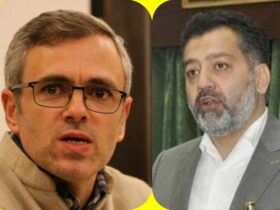


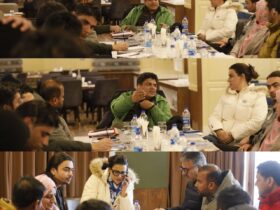

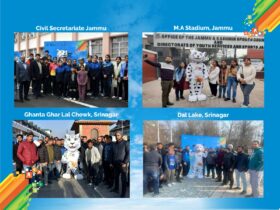
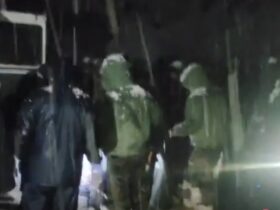
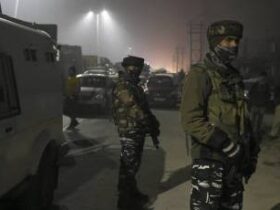
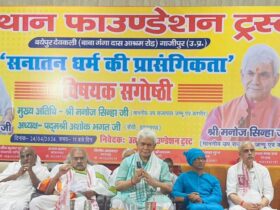
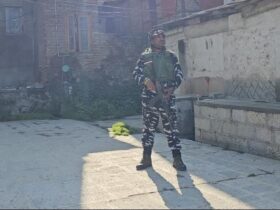
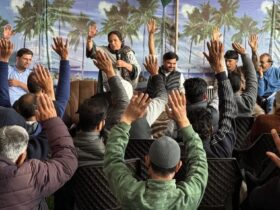
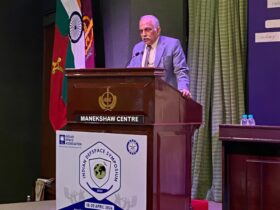
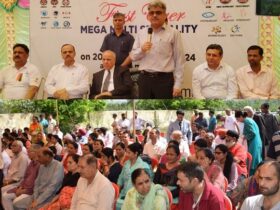
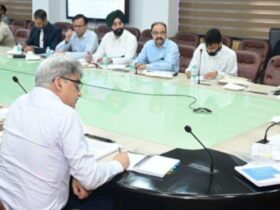
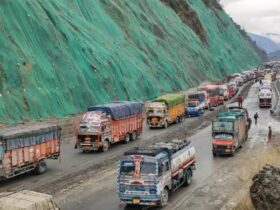
Leave a Reply